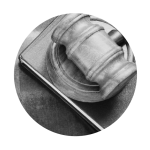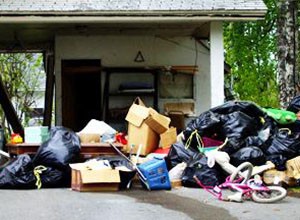 In recent years, reports of bullying incidents have been on the increase in schools and have reached a point where some have tragically resulted in loss of life, causing a growing concern amongst parents. Bullying can take many forms, some more severe than others, and affects victims in various ways. Sadly, due to technological advancements, many of these incidents are captured on video and shared on all social media platforms. This often leads to the issue exceeding beyond the school environment into the wider community, which can have repercussions for perpetrators, victims, parents, and educators. The complexity, magnitude, and severity of the forms of bullying that we are now witnessing have raised many legal questions. But what does the law in South Africa say regarding this issue?
In recent years, reports of bullying incidents have been on the increase in schools and have reached a point where some have tragically resulted in loss of life, causing a growing concern amongst parents. Bullying can take many forms, some more severe than others, and affects victims in various ways. Sadly, due to technological advancements, many of these incidents are captured on video and shared on all social media platforms. This often leads to the issue exceeding beyond the school environment into the wider community, which can have repercussions for perpetrators, victims, parents, and educators. The complexity, magnitude, and severity of the forms of bullying that we are now witnessing have raised many legal questions. But what does the law in South Africa say regarding this issue?
The laws and legal principles applied to children take into account their age, their level of maturity, and their ability to fully appreciate and understand the seriousness of the consequences of their actions. A distinction is made between the following:
- Children under the age of 7 lack the legal capacity, meaning they can’t be held legally liable for their actions.
- A child who is 7 years and older lack the legal capacity; however, this presumption can be rebutted, resulting in legal accountability.
- A minor between the ages of 15 and 18 may be held legally accountable.
Children share the same human rights enlisted in the Constitution of the Republic of South Africa as adults, and in addition to these, enjoy additional rights explicated in Section 28 of the Children’s Act (2005), which allows a child or a guardian to bring a case of bullying to court. It safeguards and protects children’s rights and, for this reason, does not aim to punish the bully, but rather rehabilitate him/her through appropriate programmes and processes.
Regarding the regulation of incidents in schools, the South African Schools Act (1996) requires schools to adopt a code of conduct or a set of rules around learner behaviour and enforce appropriate disciplinary measures where necessary. According to the Act, it is the school’s responsibility to take appropriate action and if it fails to do so, the school can be held liable for damage, injury, or loss suffered by a learner.
Furthermore, the Child Justice Act (2008) recognises the criminal element of bullying and provides a separate criminal justice system for children – with a focus on restorative justice (rehabilitation). If there is proof of criminal intent, a child may be held criminally liable from as young as ten years old.
The Protection from Harassment Act 17 of 2011 brought some balance of power by granting a victim permission to apply for a protection order against their bully.
The provisions contained in these statutes serve to offer protection to children in cases of bullying, as each child has a responsibility to respect and promote the rights afforded to them and to not deprive anyone else from enjoying them. Failure to observe these rights attracts legal accountability.
In terms of criminal law, depending on the nature and extent of the act of bullying, a perpetrator may face charges of assault with or without the intent to inflict serious bodily harm, intimidation, crimen injuria, etc. In terms of civil law, claims for damages may arise against the school and/or the Department of Education and/or the bully. The facts of each case determine the route it will take legally.
In the more extreme cases, where a minor dies as a result of the bullying act, the deceased’s family may still claim for emotional shock, trauma, grief and/or constitutional damages (if circumstances permit).
To prevent bullying from escalating to a criminal level in schools, educators and parents must take proactive measures, such as implementing an anti-bullying policy. Every learner should recognise the harm bullying can have on his/her peers, as well as understand the consequences that come with this behaviour. Educators and parents must cultivate an environment of mutual respect, non-judgement, and active listening to model the kind of behaviour children must emulate.
Reference List:
- The Constitution of the Republic of South Africa, 1996
- The Children’s Act, 2005
- The South African Schools Act, 1996
- https://www.golegal.co.za/protect-child-bullied/
- https://www.adams.africa/litigation/bullying-in-schools-what-does-the-law-say/
This article is a general information sheet and should not be used or relied on as legal or other professional advice. No liability can be accepted for any errors or omissions nor for any loss or damage arising from reliance upon any information herein. Always contact your legal adviser for specific and detailed advice. Errors and omissions excepted (E&OE)

 The personal use of cannabis has been decriminalised in South Africa by the Constitutional Court in Minister of Justice and Constitutional Development and Others v Prince 2018 (10) BCLR 1220 (CC). The Constitutional Court held that it is permissible for adult persons to possess, use or cultivate cannabis in a private place for that person’s own personal consumption. However, the court did not give much clarity on how this will be implemented in our daily lives, and it was left to the legislator to fill the gaps.
The personal use of cannabis has been decriminalised in South Africa by the Constitutional Court in Minister of Justice and Constitutional Development and Others v Prince 2018 (10) BCLR 1220 (CC). The Constitutional Court held that it is permissible for adult persons to possess, use or cultivate cannabis in a private place for that person’s own personal consumption. However, the court did not give much clarity on how this will be implemented in our daily lives, and it was left to the legislator to fill the gaps.

